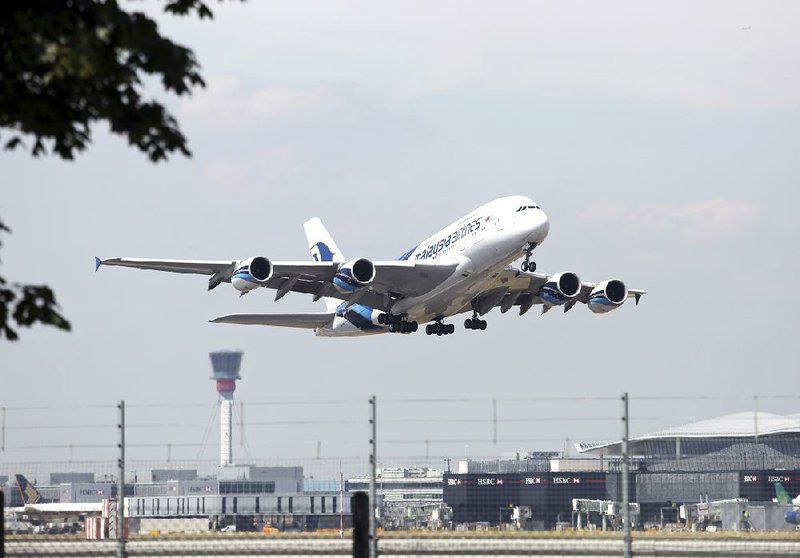Malaysian Airline System Bhd., reeling from its second disaster in four months, is nearing the end of its days as a publicly traded company.
The company plans to present a revival plan to its state-run parent, Khazanah Nasional Bhd., this week, people familiar with the matter said Monday, asking not to be identified because the talks are private. The options range from Khazanah taking Malaysian Air private to bankruptcy, according to one of the people, with both routes involving a delisting.
Malaysian Air says its focus is on the victims and families of Flight 17, while the loss of 537 lives and two planes since March is straining the carrier's ability to stay in business. Even a month before the latest disaster, Khazanah was estimating that the unprofitable airline had enough funds to last it only about a year.
"They don't have the luxury of time," said Mohshin Aziz, an analyst at Malayan Banking Bhd. in Kuala Lumpur. "Malaysian Air doesn't have a huge balance sheet, it's still struggling from perception issues. We will probably see drastic measures."
Flight 17 was en route to Kuala Lumpur from Amsterdam carrying 298 passengers and crew members Thursday, when it was shot down over eastern Ukraine. The disaster occurred four months after Malaysian Air Flight 370 disappeared with 239 people aboard, leading to the longest search for a missing plane in modern aviation history.
Asuki Abas, a spokesman for Khazanah, couldn't be reached on his mobile phone for comment. The Wall Street Journal reported Sunday that Khazanah was increasingly leaning toward taking the carrier private, citing unidentified people.
"Our focus during this very challenging time is to work with the emergency responders and authorities and mobilize full support to provide all possible care to the family members of those onboard MH17," Malaysian Air said in a response to queries about the revival plan. "This is not the right time to address this question."
Shares of Malaysian Air surged 15 percent Tuesday, the most since October 2007, above the level before the downing of Flight 17. Still, the stock has fallen 26 percent in Kuala Lumpur trading this year.
Khazanah, Malaysia's sovereign wealth fund, owns 69.4 percent of the carrier. Privatizing Malaysian Air could mean the fund would need to buy the nearly 31 percent it doesn't own, a stake valued near $315 million based on the stock's latest closing price.
"If they do go through with this privatization, they will be killing a few birds with one stone," said Terence Fan, an assistant professor at Singapore Management University, who researches the aviation business. "They can make the cash flow, maybe have some thorough strategic change and use this as a chance to rebrand themselves."
Should Malaysian Air choose bankruptcy, it could be the biggest for an airline in terms of assets since AMR Corp. in 2011, according to data compiled by Bloomberg.
Malaysian Air's Hugh Dunleavy, the airline's director of commercial operations, had in May ruled out a bankruptcy.
The carrier's options also include renegotiations with the labor union, according to a person familiar with the matter.
Malaysian Air employees generated an average $220,000 of revenue in the past three years, compared with $524,800 at Singapore Airlines Ltd. and $245,000 at Thai Airways International Pcl, according to data compiled by Bloomberg.
The airline carried 3.1 percent fewer passengers in June from a year earlier and filled 77 percent of its seats, down from 84 percent a year earlier, Malaysian Air reported.
Malaysian Air may also modify plans for future plane orders after the disappearance of Flight 370 tarnished its reputation.
The airline had anticipated ordering as many as 100 jets and was considering a range of models from Airbus Group NV and Boeing Co., a person familiar with the purchase strategy said in February. The carrier needs fuel-efficient jets to cut costs amid rising competition from discount airlines such as AirAsia Bhd.
Chief Executive Officer Ahmad Jauhari Yahya said in an interview last month that the carrier's fleet plan was under review.
"Even the strongest airlines would be falling on their knees on these two incidents," Mohshin at Malayan Banking said.
Information for this article was contributed by Clement Tan and Anurag Kotoky of Bloomberg News.
Business on 07/23/2014

